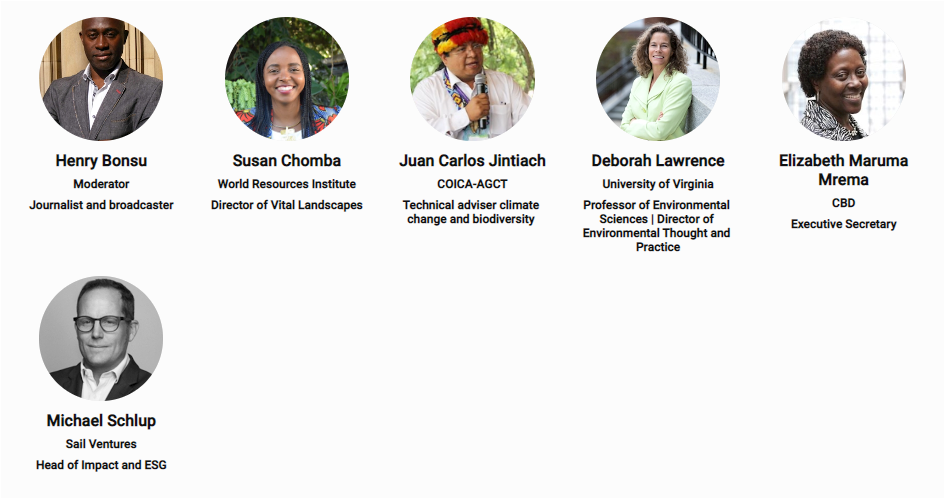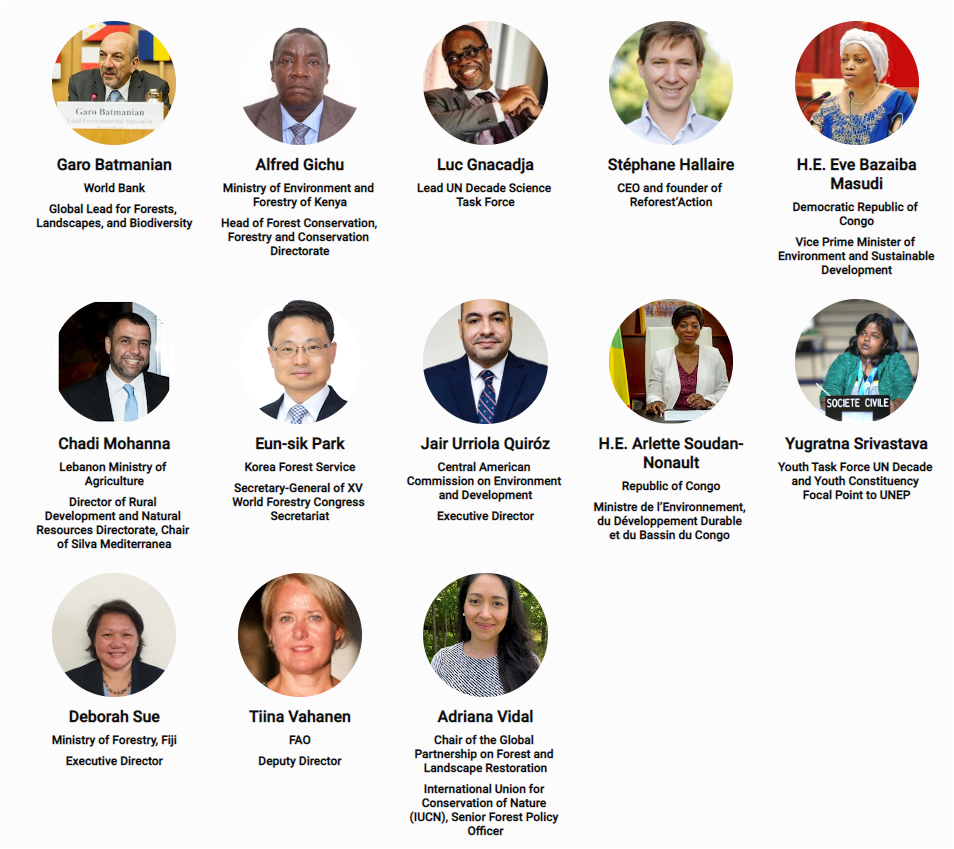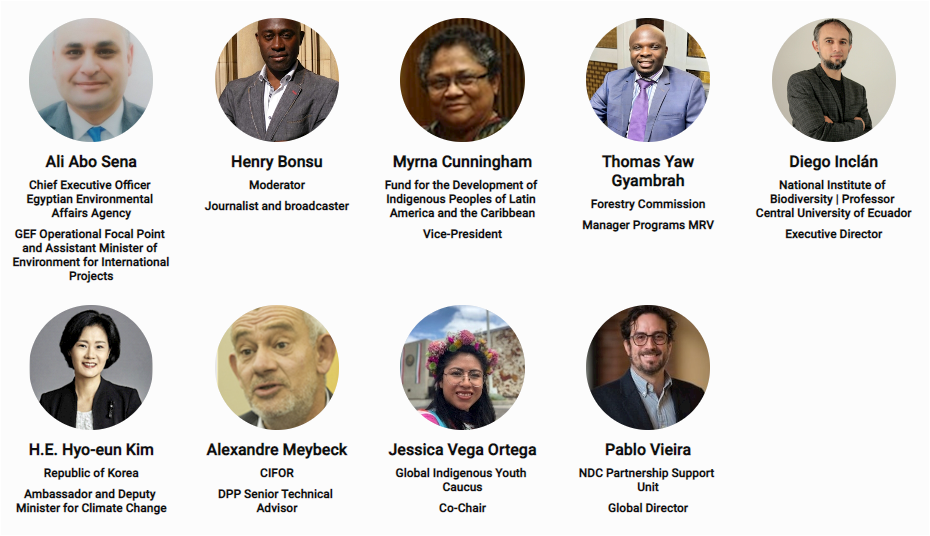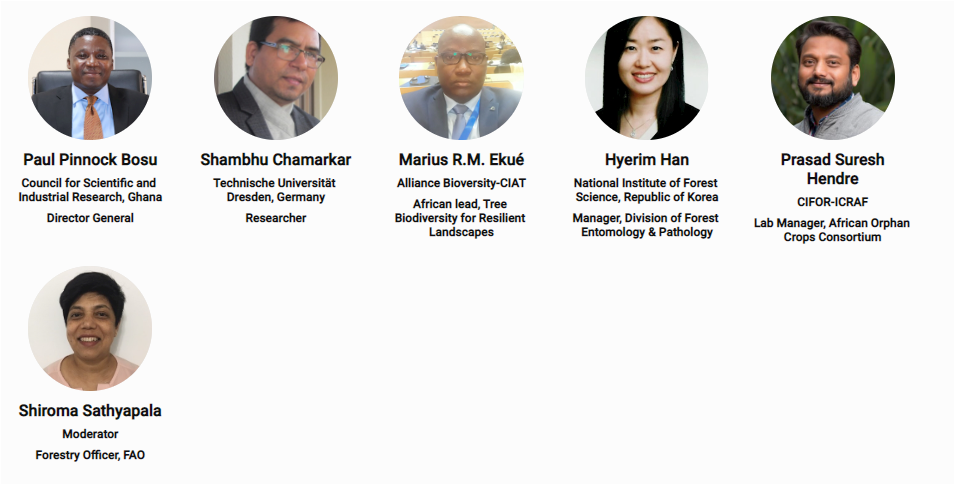
Sub-theme 2: Nature-based solutions for climate change adaptation and mitigation and biodiversity conservation
What is the potential of forest conservation, sustainable use and restoration to address climate change mitigation and adaptation, biodiversity and ecosystem services benefits for human well-being? This sub-theme will review the advances made on nature-based solutions in relation to the UN Decade on Ecosystem Restoration and aim to inform relevant international processes of the Rio Conventions, i.e. the UNFCCC (NDCs of the Paris Agreement), UNCCD (Land Degradation Neutrality) and CBD (post-2020 global biodiversity framework).
To inform these processes, the focus will be on relevant practical experience and modalities to generate insights on (1) how forests can contribute to the implementation of relevant international processes, and (2) how the ambition of forest-related nature-based solutions to these processes can be enhanced.
Setting the scene of forests and trees as nature-based solutions
May 2, 2022 | 4:00 PM KST - 5:30 PM KST
Watch the video replay English | French | Spanish | Korean
This session will set the scene by introducing the state-of-the-art in nature-based solutions (NBS) and why they are critical for the planet and human well-being, as well as for more sustainable agri-food systems. Managed and restored forests, along with trees outside forests, are part of the nature-based solutions portfolio.
Objectives
- To recognize the potential of NBS as holistic solutions to mitigate climate change, conserve biodiversity, and build adaptive capacity and resilience for food security and reducing disaster impact.
- To highlight the benefits for governments, multi-lateral organizations, the private sector and other non-state actors to commit more support and funding to NBS aligned with the outcomes of the major conventions.
- To recognize and support the role of Indigenous Peoples and local communities in NBS.
Speakers

Sustainably managed forests for biodiversity
May 3, 2022 | 11:00 AM KST - 12:30 PM KST
Watch the video replay English | French | Spanish | Korean
The session will be organized as a hybrid event with a keynote speech, followed by sharing of key messages from the upcoming FAO-CIFOR Forestry Paper 'Mainstreaming biodiversity in forest management', and a moderated panel discussion highlighting experiences in the conservation and sustainable use of biodiversity in support of the post-2020 global biodiversity framework.
Objectives
The objective is to present inspirational examples of how to deliver on commitments related to sustainable forest management (SFM) and biodiversity conservation, and why upscaling SFM matters for the implementation of the post-2020 global biodiversity framework.
Speakers

Global restoration programmes during the UN Decade on Ecosystem Restoration
May 3, 2022 | 4:00 PM KST - 5:30 PM KST
Watch the video replay English | French | Spanish | Korean
Two billion hectares of the world’s deforested and degraded landscapes, an area larger than South America, have potential for forest and landscape restoration. The United Nations Decade on Ecosystem Restoration is a huge opportunity to restore millions of hectares of degraded land worldwide by 2030. This session will present good practices and lessons learnt from ongoing initiatives and will present a road map to organize a long-term effort of capitalization of good practices.
Objectives
- Share lessons learnt from successful initiatives with a focus on restoration practices/governance schemes in multiple contexts/ecosystems, ranging from assisted natural restoration to tree growing approaches.
- This session will build on good practices learnt from ongoing initiatives and will present a road map to organize a long-term effort of capitalization of good practices in the context of the United Nations Decade on Ecosystem Restoration by 2030.
Speakers

Harnessing nature-based solutions from forests for climate change mitigation and adaptation in NDCs
May 4, 2022 | 11:00 AM KST - 12:30 PM KST
Watch the video replay English | French | Spanish | Korean
As of July 2021, 47 out of 55 countries that submitted enhanced or updated Nationally Determined Contributions (NDC) to the UNFCCC mention forests. Most of these also acknowledge the role of Indigenous Peoples and Local Communities (IPLCs) as vital custodians and managers of forestlands and other ecosystems. To realize the mitigation and adaptation potential of forests, governments must increase their domestic investments and international support for forests and for the IPLCs who protect, sustainably manage and restore them. Existing carbon markets and new carbon pricing schemes can also help mobilize the up-front investments that countries require for implementation of nature-based solutions in NDCs.
Objectives
The session seeks to explore how to leverage nature-based solutions in climate action.
Speakers

The role of forest genetic resources and integrated management of pests and diseases in maintaining healthy and resilient forests
May 5, 2022 | 2:30 PM KST - 4:00 PM KST
Watch the video replay English | French | Spanish | Korean
Healthy and resilient forests are crucial for safeguarding biodiversity and maintaining ecosystem services. Genetic diversity and integrated pest management are nature-based solutions for continued adaptation of forests to climate change. Moreover, genetic diversity provides both resilience and resistance to stress factors and forest disturbances, such as outbreaks of pests and diseases. This session will present recent advances in understanding the genetic basis of adaptive traits and resistance to pests and diseases, and integrated management of outbreaks of pests and diseases.
Objectives
The expected outcome is increased awareness among policymakers and practitioners on the importance of genetic aspects and integrated management of pests and diseases, and on the nature-based solutions offered by these domains for forest management, biodiversity conservation and climate-change adaptation and mitigation.
Speakers

